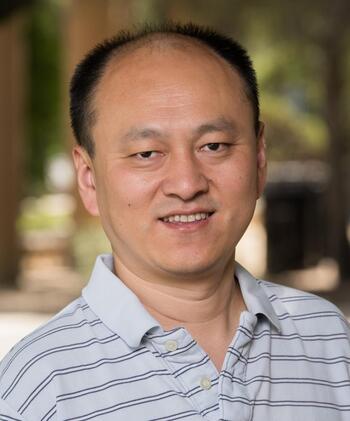In the context of growing tensions between the U.S. and China, many Asian countries have faced the challenge of balancing their relationships with the two countries. Given its security alliance with the U.S. is a cornerstone of its foreign policy, Japan seems to be more closely aligned with the U.S. than any other country. However, Japan’s most important trade partner is China, and it cannot overlook its economic relations with China in making foreign policy decisions. What should Japan’s approach be with the increasingly authoritarian regime in China expanding its ambitions to compete with the U.S. while domestic turmoil hampers the U.S. capacity to project its power and influence in the Indo-Pacific region? As a growing number of trade agreements in the region, such as CPTPP (Comprehensive and Progressive Agreement for Trans-Pacific Partnership), RCEP (Regional Comprehensive Economic Partnership), and now IPEF (Indo-Pacific Economic Framework) create an alphabet soup of intersecting economic relations, how should Japan navigate the treacherous terrain to ensure its economic security and energy sufficiency? To answer these questions, this webinar features two leading Japanese experts in Chinese politics, economy, and diplomacy — Chisako Masuo and Ryo Sahashi.
Speakers
Chisako T. Masuo (益尾知佐子) is a Professor at the Faculty of Social and Cultural Studies, Kyushu University, and an Adjunct Fellow at the Japan Institute of International Affairs (JIIA). She was given the Nakasone Yasuhiro Award of Excellence in 2021 for her contribution to China studies and for the policy discussions regarding China’s Coast Guard Law. She received Ph.D. from the University of Tokyo in 2008. Her research topics include Chinese domestic politics, foreign and maritime policies, and international relations with regard to China. Professor Masuo was a visiting scholar at the Chinese Academy of Social Sciences and China Foreign Affairs University in 2019, and a coordinated research scholar working with the late Professor Ezra F. Vogel at the Harvard-Yenching Institute from 2014-2015. She is the author of
China’s Behavioural Principles: International Relations Determined by the Domestic Currents (Tokyo: Chuko Publishing, 2019), as well as
China Looks Back: Mao’s Legacy in the Open-Door Era (University of Tokyo Press, 2010), and a co-author of
A Diplomatic History of China (University of Tokyo Press, 2017) all in Japanese. She also writes articles and book chapters in English and Chinese.
Ryo Sahashi is an Associate Professor of International Relations, Institute for Advanced Studies on Asia, the University of Tokyo. Dr. Sahashi specializes on international politics in East Asia. His recent book is
US-China Rivalry: A Shift of American Strategy and Divided Worlds (Tokyo: Chuko, 2021)
, In a Search for Coexistence: the United States and Two Chinas during the Cold War (Tokyo: Keiso, 2015), and he edits
East Asian Order in the Post-Cold War Era (Tokyo: Keiso, 2020). In English, he edits
Looking for Leadership: The Dilemma of Political Leadership in Japan (Tokyo and New York: Japan Center for International Exchange, 2015), and his recent articles appears on
China International Strategy Review,
Contemporary Politics, and Journal of Contemporary China. he serves as a Member for Council on the Actual State of Land Use, Advisory Panel on Science & Technology Diplomacy, and Expert Panel on 50
th Year of Japan-ASEAN Friendship and Cooperation. He also works as Faculty Fellow, Research Institute of Economy, Trade, and Industry; Visiting Fellow, 21
st Century Policy Institute, Keidanren; Research Fellow of Japan Center for International Exchange. He has been Japan Scholar, Wilson Center, Visiting Associate Professor, Walter H. Shorenstein Asia Pacific Research Center, Stanford University and Professor, Kanagawa University. He received his B.A. from International Christian University and his Ph.D. from the Graduate Schools for Law and Politics at the University of Tokyo.
Moderator
Kiyoteru Tsutsui is the Henri H. and Tomoye Takahashi Professor, Professor of Sociology, Senior Fellow at the Freeman Spogli Institute for International Studies, and Deputy Director of the Walter H. Shorenstein Asia-Pacific Research Center, where he is also Director of the Japan Program. He is the author of Rights Make Might: Global Human Rights and Minority Social Movements in Japan (Oxford University Press, 2018), co-editor of Corporate Responsibility in a Globalizing World (Oxford University Press, 2016) and co-editor of
The Courteous Power: Japan and Southeast Asia in the Indo-Pacific Era (University of Michigan Press, 2021).











